September 15, 2021 | Deborah Kotz
Multi-Disciplinary Team of Researchers Identify Mechanism of Protection Conferred by Probiotic Supplement
Eating yogurt containing a particular strain of a well-studied probiotic appears to protect against harmful changes in the gut microbiome that are associated with antibiotic administration. That is the finding from a new randomized clinical trial, led by researchers at the University of Maryland School of Maryland (UMSOM), the University of Maryland School of Pharmacy (UMSOP), and Georgetown University Medical Center, which was recently published in the journal Nutrients.
The study found that yogurt containing the probiotic Bifidobacterium lactis BB-12 worked better than a placebo at maintaining the community of bacteria in the colon. The findings were so positive that the NIH funded an additional follow-up study.
.jpg) “This finding provides important new insights into the mechanisms by which the probiotic, BB-12, may protect against antibiotic-associated diarrhea,” said study co-leader Claire Fraser, PhD, Professor of Medicine and Dean’s Endowed Professor of UMSOM and Director of the UMSOM Institute for Genome Sciences. “The new insights that we obtained regarding BB-12 reflect the multi-omics approach that we used in our study. This was possible only because of the different expertise that each of the principal investigators brought to this collaboration.”
“This finding provides important new insights into the mechanisms by which the probiotic, BB-12, may protect against antibiotic-associated diarrhea,” said study co-leader Claire Fraser, PhD, Professor of Medicine and Dean’s Endowed Professor of UMSOM and Director of the UMSOM Institute for Genome Sciences. “The new insights that we obtained regarding BB-12 reflect the multi-omics approach that we used in our study. This was possible only because of the different expertise that each of the principal investigators brought to this collaboration.”
In the study, 42 healthy volunteers were randomly assigned to consume a daily serving-size container of yogurt containing BB-12 along with a standard week-long regimen of the antibiotic amoxicillin clavulanate. They continued to consume the yogurt every day for a week after finishing the antibiotic. An additional 20 participants served as the control group and were randomly assigned to consume a daily yogurt without the probiotic for two weeks while also taking the same antibiotic regimen.
The researchers found that levels of the short chain fatty acid acetate, a beneficial metabolite produced by the microbiota, were reduced in all subjects after taking the antibiotic; however, the reduction in acetate was significantly greater in subjects receiving the placebo yogurt as compared with BB-12 supplemented yogurt. Acetate levels in subjects who received BB-12 also returned to baseline levels by 30 days, while they remained below baseline in subjects receiving the placebo.
About one in five people who take antibiotics develop antibiotic-associated diarrhea due to the drugs disrupting the healthy gut microbiome. Patients may stop taking their medications early after developing diarrhea, which could cause their original infection to persist. A small percentage may develop a life-threatening infection with the bacteria C. difficile, which can reside in the gut but is usually kept in check by good bacteria in the microbiome.
“An important reason why our study may have demonstrated positive results may be the timing of the probiotic administration on the day antibiotics were initiated by the study volunteers,” said study co-leader Daniel Merenstein, MD, Professor of Family Medicine and Director of Research Programs for the Department of Family Medicine at Georgetown University School of Medicine. “Starting the probiotic as early as possible, before the antibiotic symptoms have progressed, may result in a greater opportunity for the probiotic mechanisms to be expressed and may ultimately lead to more beneficial clinical outcomes.”
The researchers plan a follow-up study to further explore this question and decide when is the best time to consume a probiotic.
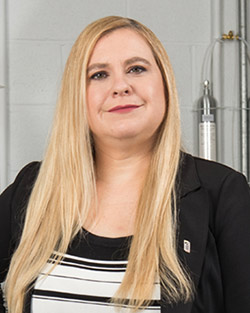 “This exciting clinical study was enabled by mass spectrometry-based quantitation of acetate which was a key endpoint important to assessing the effect of the BB-12,” said study co-leader Maureen Kane, PhD, Associate Professor of Pharmaceutical Sciences and Executive Director of the UMSOP Mass Spectrometry Center. The mass spectrometry-based approach, which detects molecules according to their molecular mass, allowed for accurate and precise determination of the amount of acetate. It also allowed for the determination of several other short chain fatty acids within the biological samples obtained from patients.
“This exciting clinical study was enabled by mass spectrometry-based quantitation of acetate which was a key endpoint important to assessing the effect of the BB-12,” said study co-leader Maureen Kane, PhD, Associate Professor of Pharmaceutical Sciences and Executive Director of the UMSOP Mass Spectrometry Center. The mass spectrometry-based approach, which detects molecules according to their molecular mass, allowed for accurate and precise determination of the amount of acetate. It also allowed for the determination of several other short chain fatty acids within the biological samples obtained from patients.
“The School of Pharmacy’s Mass Spectrometry Center lends its expertise to a wide array of research studies and projects, demonstrating the enormous value of this technology,” said Natalie D. Eddington, PhD, FAAPS, FCP, Professor and Dean of the University of Maryland School of Pharmacy. “Working with 17 mass spectrometers, our faculty, staff, and graduate students contribute to discoveries that span basic biology and medicine to technology development and translational research.”
Funding research was supported by the National Center for Complementary and Integrative Health of the National Institutes of Health under Award Number R61AT009622. Additional support was provided by the University of Maryland School of Pharmacy Mass Spectrometry Center (SOP1841-IQB2014).
 “Our researchers seek to advance treatments for patients by truly understanding the mechanisms behind those treatments using sophisticated technologies. We are delighted to be able to collaborate with the School of Pharmacy and its distinguished faculty on this very important project,” said E. Albert Reece, MD, PhD, MBA, Executive Vice President for Medical Affairs, UM Baltimore, and the John Z. and Akiko K. Bowers Distinguished Professor and Dean, University of Maryland School of Medicine. “The multi-disciplinary approach to understanding how probiotics work to maintain a healthy microbiome is crucial for advancing this field and ultimately helping patients avoid debilitating side effects from antibiotics.”
“Our researchers seek to advance treatments for patients by truly understanding the mechanisms behind those treatments using sophisticated technologies. We are delighted to be able to collaborate with the School of Pharmacy and its distinguished faculty on this very important project,” said E. Albert Reece, MD, PhD, MBA, Executive Vice President for Medical Affairs, UM Baltimore, and the John Z. and Akiko K. Bowers Distinguished Professor and Dean, University of Maryland School of Medicine. “The multi-disciplinary approach to understanding how probiotics work to maintain a healthy microbiome is crucial for advancing this field and ultimately helping patients avoid debilitating side effects from antibiotics.”
About the University of Maryland School of Medicine
Now in its third century, the University of Maryland School of Medicine was chartered in 1807 as the first public medical school in the United States. It continues today as one of the fastest growing, top-tier biomedical research enterprises in the world -- with 46 academic departments, centers, institutes, and programs, and a faculty of more than 3,000 physicians, scientists, and allied health professionals, including members of the National Academy of Medicine and the National Academy of Sciences, and a distinguished two-time winner of the Albert E. Lasker Award in Medical Research. With an operating budget of more than $1.2 billion, the School of Medicine works closely in partnership with the University of Maryland Medical Center and Medical System to provide research-intensive, academic and clinically based care for nearly 2 million patients each year. The School of Medicine has nearly $600 million in extramural funding, with most of its academic departments highly ranked among all medical schools in the nation in research funding. As one of the seven professional schools that make up the University of Maryland, Baltimore campus, the School of Medicine has a total population of nearly 9,000 faculty and staff, including 2,500 students, trainees, residents, and fellows. The combined School of Medicine and Medical System (“University of Maryland Medicine”) has an annual budget of over $6 billion and an economic impact of nearly $20 billion on the state and local community. The School of Medicine, which ranks as the 8th highest among public medical schools in research productivity (according to the Association of American Medical Colleges profile) is an innovator in translational medicine, with 606 active patents and 52 start-up companies. In the latest U.S. News & World Report ranking of the Best Medical Schools, published in 2021, the UM School of Medicine is ranked #9 among the 92 public medical schools in the U.S., and in the top 15 percent (#27) of all 192 public and private U.S. medical schools. The School of Medicine works locally, nationally, and globally, with research and treatment facilities in 36 countries around the world. Visit medschool.umaryland.edu
Contact
Deborah Kotz
University of Maryland Medicine
dkotz@som.umaryland.edu
(410) 706-4255
Related stories
.jpg)
Wednesday, March 01, 2023
Internationally-Renowned Scientist Claire Fraser, PhD, To Step Down as Director of the University of Maryland School of Medicine's Institute for Genome Sciences
Claire Fraser, PhD, a pioneer and global leader in genomic research, has announced that she will step down from her position as Director of the Institute for Genome Sciences (IGS) in the University of Maryland School of Medicine (UMSOM). She will now continue as the Dean E. Albert Reece Endowed Professor and Professor of Medicine and Microbiology and Immunology at UMSOM and scientist at IGS until she retires in 2024.
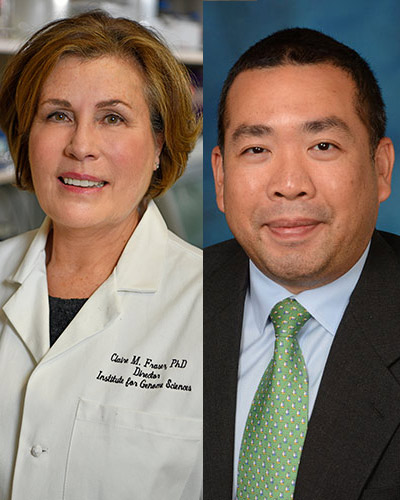
Thursday, June 23, 2022
New Research Shows Mothers’ HIV Status, Breastfeeding, and the Infant Gut Microbiome Can Have Long-Term Impact on Infant Health
Babies born to women with HIV often have poorer health and under-developed growth in the early months of life than infants born to women without the infection — even if those babies don’t contract HIV during birth, according to a new study by researchers at the University of Maryland School of Medicine (UMSOM)’s Institute for Genome Sciences (IGS) and Institute of Human Virology (IHV). The study also provides new insights into why these health issues often continue throughout the babies’ lives.
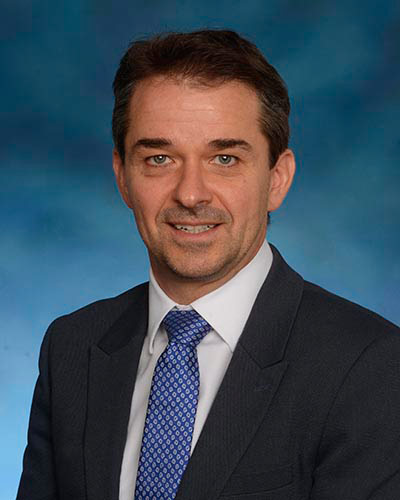
Thursday, March 18, 2021
UM School of Medicine Helps Maryland Conduct State-Wide Sequencing of Variants in Positive COVID-19 Test Specimens
In an effort to monitor the spread of COVID-19 variants in the State of Maryland, University of Maryland School of Medicine (UMSOM) Dean E. Albert Reece, MD, PhD, MBA, announced that UMaryland Genomics at UMSOM will perform genome sequencing of variants in at least 10 percent of COVID-19 test samples, reaching an important benchmark set by the federal government to help control the spread of these variants.
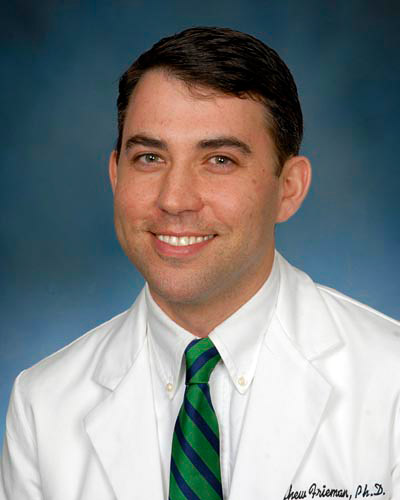
Friday, November 13, 2020
UM School of Medicine and School of Pharmacy Researchers Identify Promising New Compounds to Potentially Treat Novel Coronaviruses
Researchers at the University of Maryland School of Medicine (UMSOM) and School of Pharmacy (UMSOP) have discovered new drug compounds to potentially treat the novel coronavirus that causes COVID-19. The compounds disrupt the functioning of a protein complex inside human cells that the researchers discovered is critical for the replication and survival of coronaviruses. This finding could lead to the development of new broad-spectrum antiviral drugs that target viruses such as influenza, Ebola and coronaviruses, according to a new study published today in the Proceedings of the National Academy of Sciences (PNAS) journal.

Tuesday, February 12, 2019
UMSOM Scientists Call for Unrestricted Usage of Public Genome Data
Researchers at the Institute for Genome Sciences (IGS) at the University of Maryland School of Medicine (UMSOM) called for open access to genome data, stating that unrestricted usage is needed for progress in combating the world’s most serious diseases.
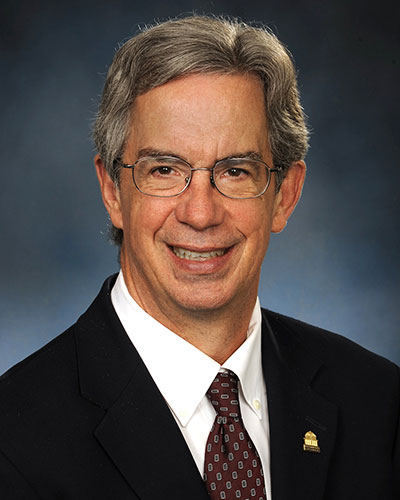
Tuesday, December 04, 2018
UMSOM/UMSOP Researchers Awarded $1.78 Million Grant to Study Brain-To-Gut Connection in Schizophrenia
Researchers at the University of Maryland School of Medicine’s (UMSOM) Maryland Psychiatric Center (MPRC) and Institute for Genome Sciences (IGS), along with researchers at the University of Maryland School of Pharmacy (UMSOP), have been awarded a collaborative five-year $1.78 million grant to study the brain-to-gut connection in schizophrenia.

Monday, February 08, 2016
UM SOM Researchers Identify Most Dangerous Strains of Often-Deadly Bacteria
A multi-disciplinary group of researchers at the University of Maryland School of Medicine (UM SOM) have for the first time determined the genetic makeup of various strains of E. coli, which every year kills hundreds of thousands of people around the world.
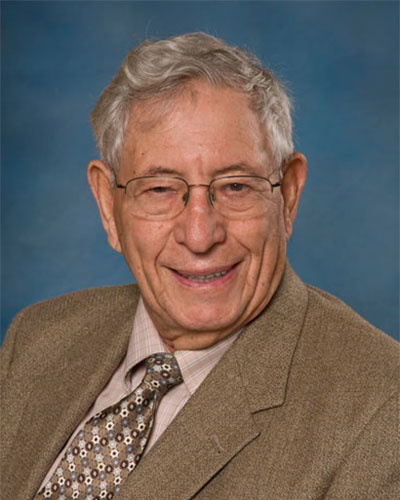
Thursday, January 21, 2016
UM SOM Board Member and Benefactor Robert E. Fischell, Awarded Presidential Medal
The White House has awarded Robert E. Fischell, ScD, a member of the University of Maryland School of Medicine (UM SOM) Board of Visitors, the National Medal of Technology and Innovation, the highest honor for technological achievement bestowed by the president of the United States. Previous recipients have included such luminaries as Steven Jobs and Stephen Wozniak (Apple Computer, Inc.), Stephen D. Bechtel, Jr. (Bechtel Group, Inc.), David Packard (Hewlett-Packard Company), Clarence L. Johnson (Lockheed Corporation), Edwin H. Land (Polaroid Corporation) and Edith Flanigen (Union Carbide).

